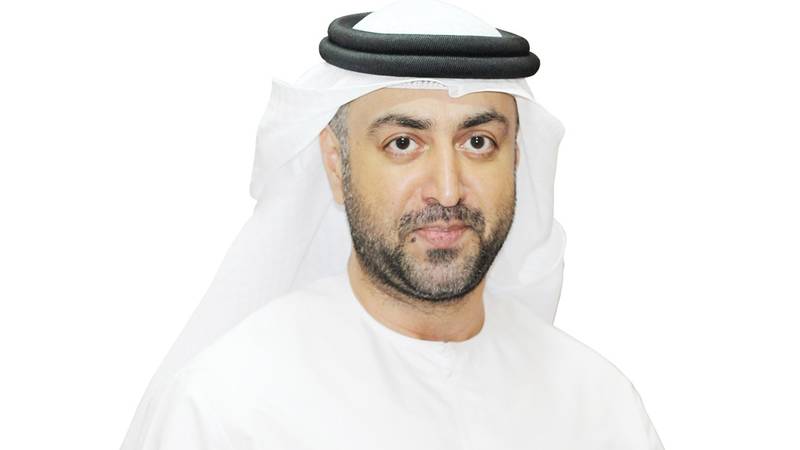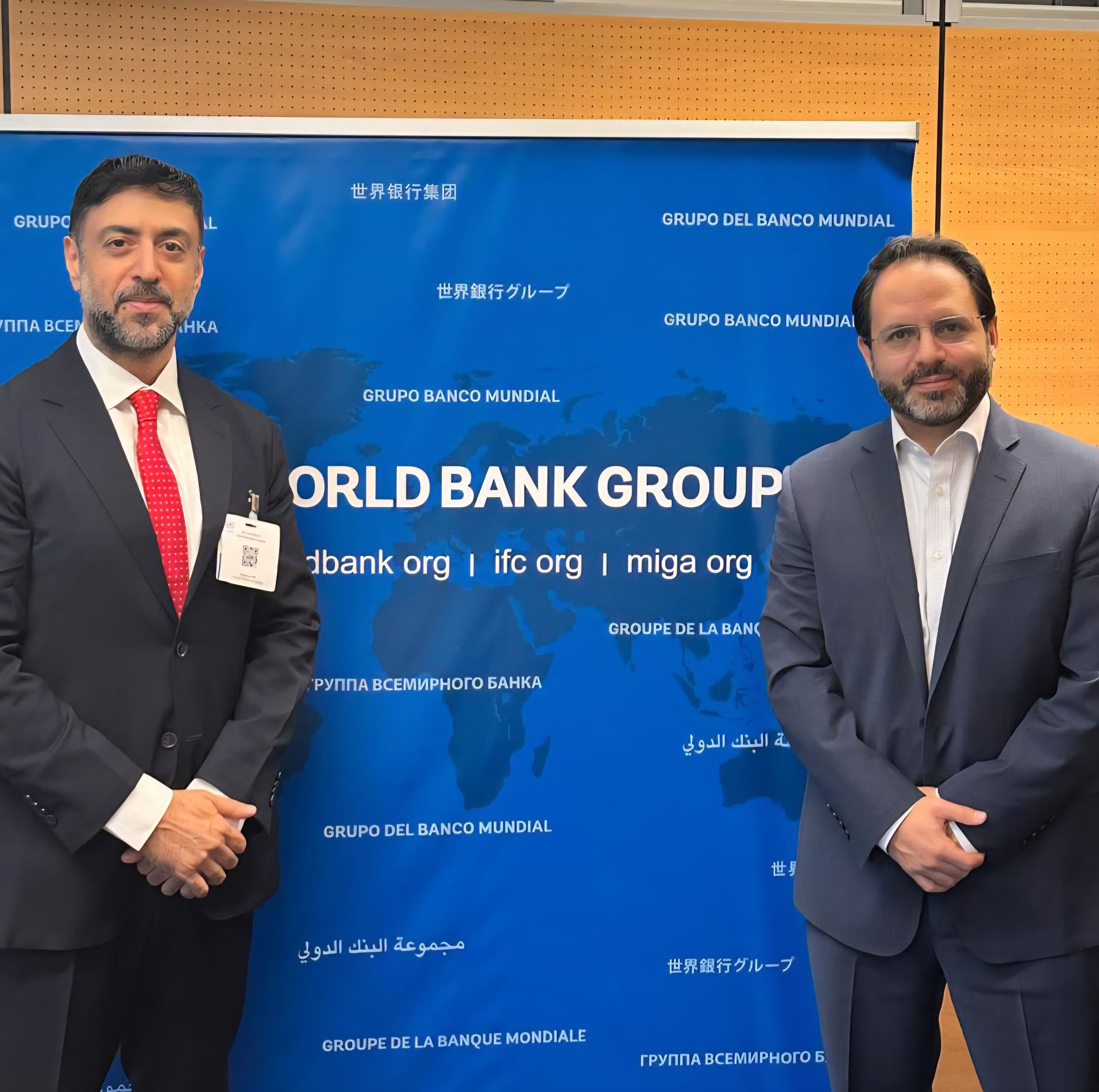August 16, 2018
Emiratis are making outstanding achievements in science, economics, and technology related to electronic applications. They have left a clear imprint that contributes to the process of technological development in the country and the Arab world, and they have strived to achieve further accomplishments to serve human societies. As His Highness Sheikh Mohammed bin Rashid Al Maktoum, Vice President and Prime Minister of the UAE and Ruler of Dubai, may God protect him, said, “The son of the Emiratis is capable of embracing space.”
Dr. Engineer Ali Mohammed Al Khouri, one of the world’s most influential and thoughtful leaders in the field of development, digital transformation, and strategic planning, has 28 years of experience in the government sector. He currently serves as Advisor to the Council of Arab Economic Unity and Head of the Digital Economy Portfolio at the League of Arab States. He also serves as Director General at the Ministry of Interior, managing a number of important technology projects. He was included in the global list of the 100 most influential figures in digital government.
Engineer Ali Mohammed Al Khouri, speaking about the factors that contributed to his achievements in electronic applications, says: “I have led, managed, and completed a large number of strategic, security, and infrastructure development projects in the government sector over a period of twenty-eight years. My professional career began with the Abu Dhabi Police in 1990.
I dedicate these achievements to His Highness Sheikh Khalifa bin Zayed Al Nahyan, President of the UAE, may God protect him; His Highness Sheikh Mohammed bin Rashid Al Maktoum, Vice President and Prime Minister of the UAE and Ruler of Dubai, may God protect him; His Highness Sheikh Mohammed bin Zayed Al Nahyan, Crown Prince of Abu Dhabi and Deputy Supreme Commander of the UAE Armed Forces, under whose chairmanship I had the honor of serving as Chairman of the Board of Directors of the Emirates Identity Authority; His Highness Sheikh Hazza bin Zayed Al Nahyan, Deputy Chairman of the Executive Council; and Lieutenant General His Highness Sheikh Saif bin Zayed Al Nahyan, Deputy Prime Minister and Minister of Interior, the exceptional leader who played a pivotal role in guiding me and completing my studies, and supporting me throughout my academic and professional career. He is an example of a leader who creates men, and it is through such men that nations are built and advance.”
I had the honor of working as part of the Emirates ID project team, from the inception of the idea until the establishment of the Emirates Identity Authority. With my colleagues, under the leadership of Lieutenant General His Highness Sheikh Saif bin Zayed, I was able to implement the UAE government’s plan, completing the registration of all residents and operating a modern and secure digital identity management system. This was a project enabling digital government and digital transformation.
I received the United Nations Award for the Most Outstanding Public Sector Project in the World, and the Authority was recognized as the best federal government entity, winning the Excellence Award in both 2012 and 2014. We also contributed to Arab League institutions, launching the e-commerce strategy with the Arab Federation for E-Commerce, which I had the honor of chairing, and the study on the role of Arab e-commerce in maximizing returns from inter-Arab trade. Recently, I established the Arab Federation for Digital Economy.
He continues: “I also served as an advisory member in various international institutions, most notably the United Nations and the European Federation for the STORKE 2 project on the European Federation’s unified identity, and the Global Agenda Council of the World Economic Forum.
” She has participated in preparing various international reports on social security systems and information- and data-driven development. She has also contributed to working papers at international and local scientific conferences and forums, playing a significant role. She has authored more than 100 books and scientific research papers on digital government, government projects, government administration, management sciences, and sociology.
She has also influenced the adoption by the United Nations, the World Economic Forum, and international institutions of many of her studies and research, which have been published and adopted by international references. The United Nations has described these studies as important references in digital transformation and included them in its public library in Washington.
Al-Khouri describes his feelings upon being announced as one of the world’s top 100 most influential digital government practitioners, saying, “This success brings greater responsibilities, especially since digital government and the digital economy are today the primary drivers of the future state, and we hope to contribute to this in the Arab world and the world as a whole.”
He explains that the Council of Economic Unity at the League of Arab States is working to unify the economic and financial legislative foundations and create a basis for cooperation between Arab countries. The Council has established many Arab Federation’s specializing in economics and trade. Based on his awareness of global changes, especially in the digital sphere, he launched the Arab Federation for Digital Economy in 2018. He then recently decided to develop a comprehensive strategic vision for Arab countries, taking into account current realities and disparities in infrastructure completion levels. He then presented it to Arab political and economic leaders for discussion and approval.
He says: “Digital transformation has become an urgent necessity, no longer an option. It is currently one of the most important distinguishing factors between developed and developing countries. Slowing down the use of technology, or dealing with it superficially, can carry serious risks and impact the stability of countries.”
Regarding the obstacles or challenges facing e-commerce or the Arab digital transformation, he says: “The studies we have prepared at the Council of Arab Economic Unity indicate that there are a number of challenges, the greatest of which are security stability, the repercussions of the political reality in the Arab region, and the tendency of many countries to allocate their budgets to support rather than development. Furthermore, many Arab countries are still based on rentier economies, based on the trade of simple materials, minerals, oil, and agricultural products, without adding industrial value. This may be a clear reason for the low volume of investments directed towards sustainable development in the digital economy, and even a reason for Arab countries’ lack of the necessary knowledge and expertise to achieve transformation processes and move to new levels of application.
It is also striking that the levels of technological infrastructure completion and development have declined from one Arab country to another. This is one of the most important reasons that make efforts to develop the digital economy difficult. Communication speed, ease, and low cost are the most important elements supporting it and represent the lifeblood of the body. Then comes the challenge associated with the weakness of the Arab transportation network, which has negative effects on inter-Arab trade, despite the fact that these countries are neighboring countries. Imagine if Arab countries were connected by railways and trains. This could lead to the realization of the dream of a “common Arab market,” a major driver in supporting economic development and Arab economic integration.
Regarding the extent of the digital economy’s contribution to the gross domestic product (GDP) of Arab countries, he said: “There are no accurate statistics on the Arab digital economy, despite some information published by Arab institutions on websites. The Council seeks to develop an index within the axes of enabling Arab regional and international competitiveness in the near future. According to some studies we are preparing at the Unity Council, it can be said that the digital economy’s contribution to the Arab GDP ranges between 1% and 4%, with the UAE topping the list.
Internationally, the contribution of the digital economy in advanced economies averages 18.4% of GDP, while in developing economies, it ranges between 10% and 35%. The United States has the largest digital economy, accounting for 35%. I refer to Apple’s announcement that its market value has exceeded one trillion dollars, representing half of the total Arab GDP. There are international discrepancies in these ratios, due to the way the index is calculated. It differs between calculating value added as a result of the digital economy, or considering the total economy influenced by information technology and the internet.
Regarding the role of the digital economy in rationalizing government spending, he stated that it entails an important foundation: reengineering government procedures to make them smarter, faster, and easier.
Regarding the contribution of digital transformation to increasing unemployment rates, through the elimination of many jobs, he said that a review of modern history since the advent of automation and the subsequent automation will reveal many jobs that have gradually disappeared, become scarce, or are no longer needed.
He added: “The issue is not related to digital transformation, and it will not stop there. Mechanization will develop, and automation will be linked with smart digital computing. The sciences will merge, and we will see advanced applied sciences, such as nanotechnology, intertwined with computer science, and much more. The era of the Fourth Industrial Revolution will certainly create new professions and jobs.
” He adds: “In the Arab region today, no less than a quarter of a million young people work for companies like Uber and Careem, an example of the sharing economy system that emerged as a result of digital economy applications. According to a study by Oxford University, 47% of jobs in developing countries will disappear in the next 25 years, and the world’s governments appear unprepared. Another study by McKinsey in 46 countries indicated that one-fifth of the world’s population will be affected by digital technology, and more than 800 million jobs will disappear by 2030.”











